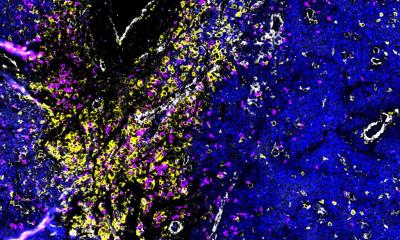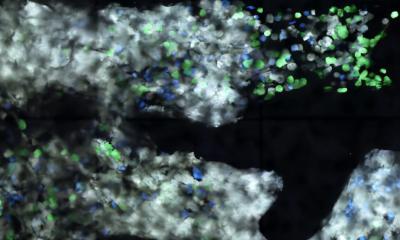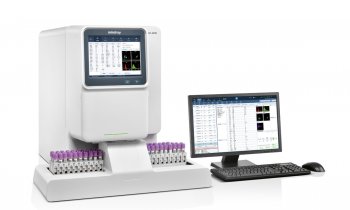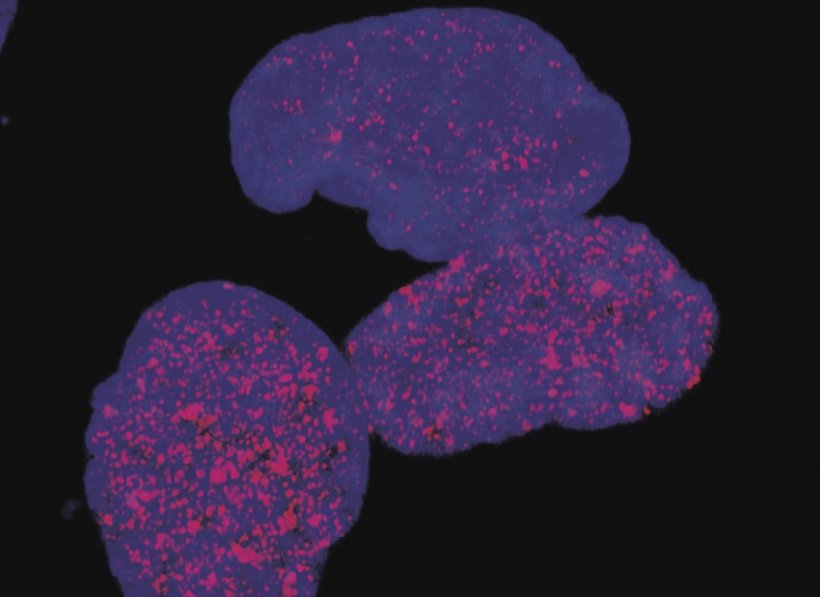
Image source: IRB Barcelona; adapted from: Ramponi V, Richart L, Kovatcheva M et al., Cancer Research 2025 (CC BY-NC-ND 4.0)
News • Researcher reveals vulnerability
New approach to crack persister tumour cells
Cancer therapies do not always succeed in eliminating tumour cells. Some of these cells enter a state of senescence—a latent, non-dividing state that is generally irreversible.
Others, however, enter a state known as 'persister,' where dormancy is temporary and reversible. This state allows the cells to begin growing again after the treatment has ended, leading to cancer recurrence.
A team led by Dr. Manuel Serrano at the Institute for Research in Biomedicine (IRB) Barcelona has discovered a key strategy through which these persister cells evade the immune response and resist cancer treatments. Specifically, the study reveals that persister cells block the genes responsible for inflammation through an epigenetic mechanism that acts as a 'molecular lock,' preventing these genes from becoming activated and alerting the immune system. This lock stops the immune system from detecting and eliminating these cells, allowing them to resist treatment. This contrasts with senescent cells, which are highly inflammatory and use different mechanisms to evade the immune response.
“This epigenetic silencing is a weakness of persister cells and could be leveraged to design new therapeutic approaches,” says Dr. Serrano, head of the study and currently working at Altos Labs (Cambridge, UK).
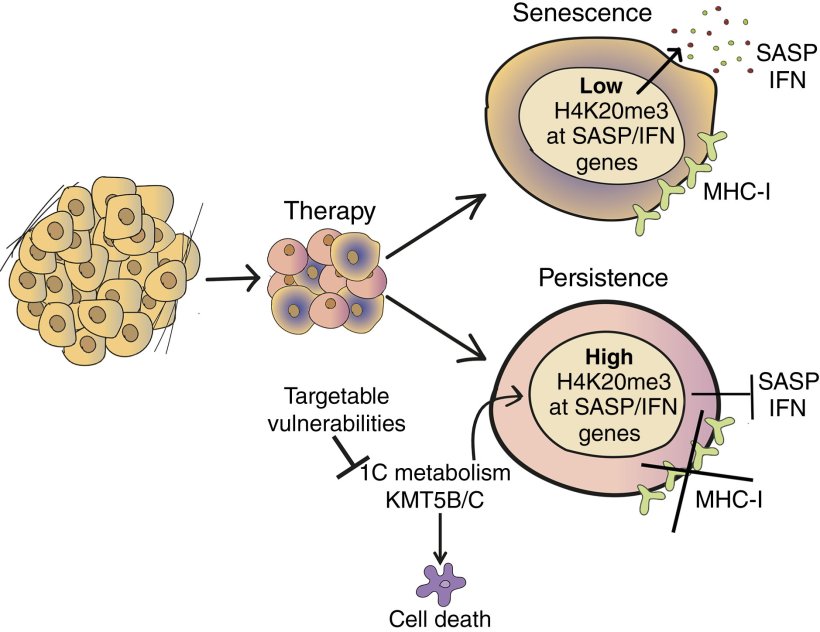
Image source: Ramponi V, Richart L, Kovatcheva M et al., Cancer Research 2025 (CC BY-NC-ND 4.0)
In addition to identifying this mechanism, the study shows that inhibiting the epigenetic mechanism could unlock inflammatory genes and compromise the viability of persister cells, thus paving the way for the development of new therapies. “The goal is to be able to develop drugs that selectively target persister cells and strengthen the effect of conventional treatments,” concludes Dr. Ramponi, now a postdoctoral researcher at the AIRC Institute of Molecular Oncology.
This discovery marks a step forward in the fight against resistance to cancer treatment. By targeting persister cells, the likelihood of relapse could be reduced, thus improving patient prognosis.
This study has been done in collaboration with the Rovira i Virgili University, the Queen Mary University of London, the CIBER de Diabetes y Enfermedades Metabólicas Asociadas (CIBERDEM), the AIRC Institute of Molecular Oncology, and Altos Labs’ Cambridge Institute of Science. The study was funded by the European Research Council (ERC), the Spanish Association Against Cancer, the European Molecular Biology Organization (EMBO), and the Barcelona Institute of Science and Technology (BIST).
Source: Institute for Research in Biomedicine Barcelona
04.02.2025




